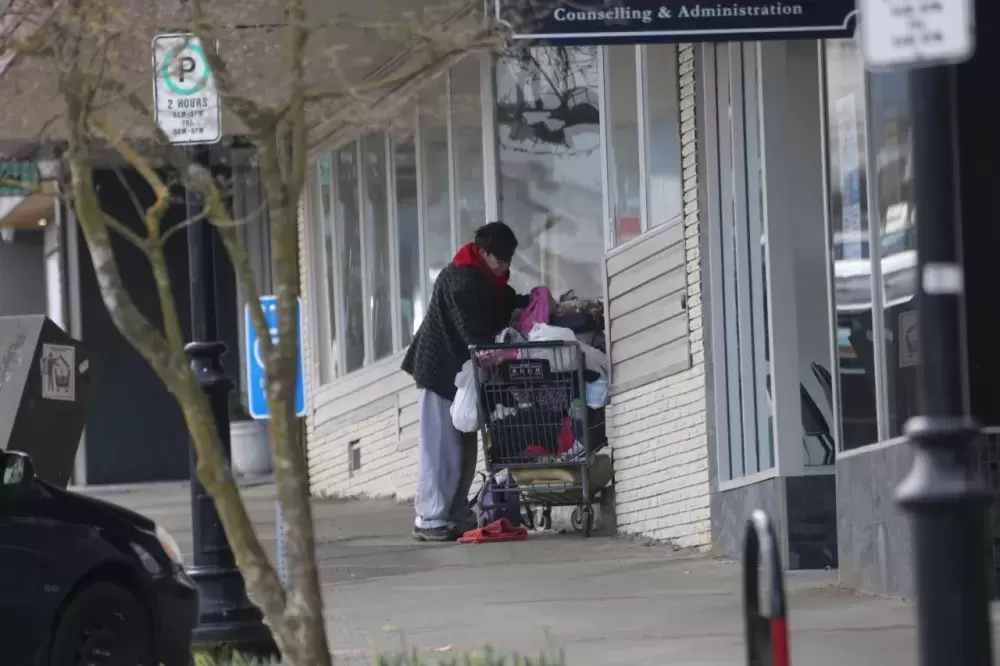The Alberni-Clayoquot Regional District (ACRD) and the City of Port Alberni have received funding from the province to develop poverty reduction action plans.
With grants from the Poverty Reduction Planning and Action Program, 54 local governments throughout the province, through 29 projects, will develop poverty reduction plans and projects that directly support people in their communities. The 29 projects are receiving a total of $1.4 million, from a $5 million provincial grant to the Union of B.C. Municipalities (UBCM), with individual project funding ranging from $16,000 to $150,000.
The ACRD was awarded $25,000 and the city received $21,950 in funding.
“This funding means that we can move forward in creating more concise action planning around poverty reduction,” said Marcie DeWitt, Alberni-Clayoquot Health Network coordinator. “We’ve been doing work with local leaders and communities since 2016 but with these bigger systemic issues it’s slow work, so really having that little bit of extra capacity to pull together the planning and really focus on the community engagement will go a long way in making sure we can start coordinating efforts better together as a region.”
In the ACRD, 29 per cent of children and youth aged 0-17 live in a low-income family, and within city limits, 33 per cent of children and youth live in a low-income family. According to the 2018 Alberni Valley Vital Signs report, this is the highest municipal child poverty rate in the province.
The Alberni Valley’s homeless population was counted in April 2018, showing that there are at least 147 homeless people in the Valley. Wes Hewitt, executive director of the Port Alberni Shelter Society, said another point-in-time homeless count was planned for earlier this year but has been put on hold due to Covid-19.
Hewitt also said about 44 per cent of the Port Alberni Shelter’s occupants are Indigenous.
DeWitt said a poverty reduction action plan will help with identifying short, medium and long-term goals that would assist with combating poverty in the region.
“The plan itself is to do community engagement around poverty reduction and what that looks like for people with lived experience, and then also doing some policy review,” DeWitt said. “Also giving local municipalities and local governments some really concise areas where their policies might be contributing to further inequities in the system.”
In 2017, DeWitt, Scott Fraser, MLA for the Mid-Island Pacific Rim, Gord Johns, MP for Courtenay-Alberni, and Penny Cote, chair of the Alberni-Clayoquot Health Network, signed a poverty reduction protocol for the Alberni-Clayoquot region, which was a first step towards establishing a multi-jurisdictional collaboration to tackle poverty in the Alberni Valley.
Since signing the protocol, DeWitt said the health network has seen an increased willingness from local leadership to talk about social determinants of health like housing, transportation and access to health services.
“We have seen some projects that have been easier since [signing the protocol], one of which would be the implementation of BC Transit in West Coast communities. That’s something we’ve been advocating for with ACRD communities for a while and seems to be moving through now quite easily,” DeWitt said. “Also our work in ensuring that our nations are included in that has been a very easy process and hasn’t taken a lot of convincing on my part to make sure those individuals are included. Just hearing local leaders being the ones to suggest those kinds of steps has been a really big part of the shift that we’ve seen.”
Fraser, who is also the minister of Indigenous Relations and Reconciliation, said with many people in the ACRD struggling to get by, the government has made tackling poverty a priority since day one.
“This funding means that vulnerable people will be better able to meet their basic needs, access services and supports,” Fraser said in a press release.
Fraser said an action plan will help provide local stakeholders with concise action steps on ways to increase access to services and supports.
The City of Port Alberni’s grant funding will support the development of an Uptown District Revitalization Strategy (UDRS). The funding will be applied to the UDRS planning and engagement process, specifically to collaborate with local stakeholders, social service providers, vulnerable populations and residents living in poverty.
The city’s goals for the UDRS are to identify a high-level vision to guide city council and staff’s efforts aimed at the Uptown District revitalization, work with the public, businesses, stakeholders and neighbourhood residents to identify current issues, challenges and possible solutions and to prepare information that can also be embedded within the city’s Official Community Plan.
“As part of the consultation program, the city recently conducted a survey on the revitalization of the Uptown District, to which 70 per cent of respondents thought that the city should do more to support individuals experiencing challenges around poverty, mental health and addictions,” said Katelyn McDougall, manager of planning with the City of Port Alberni in a press release. “Over 50 per cent of survey respondents also identified poverty reduction to be a top priority to help encourage revitalization in the area.”
The first phase of the consultation program launched on April 30, 2020, using the city’s www.letsconnectpa.ca local engagement platform. During the three-week consultation program, the city received 599 survey responses. McDougall will present other findings from the consultation program at the June 22 regular meeting of council.







